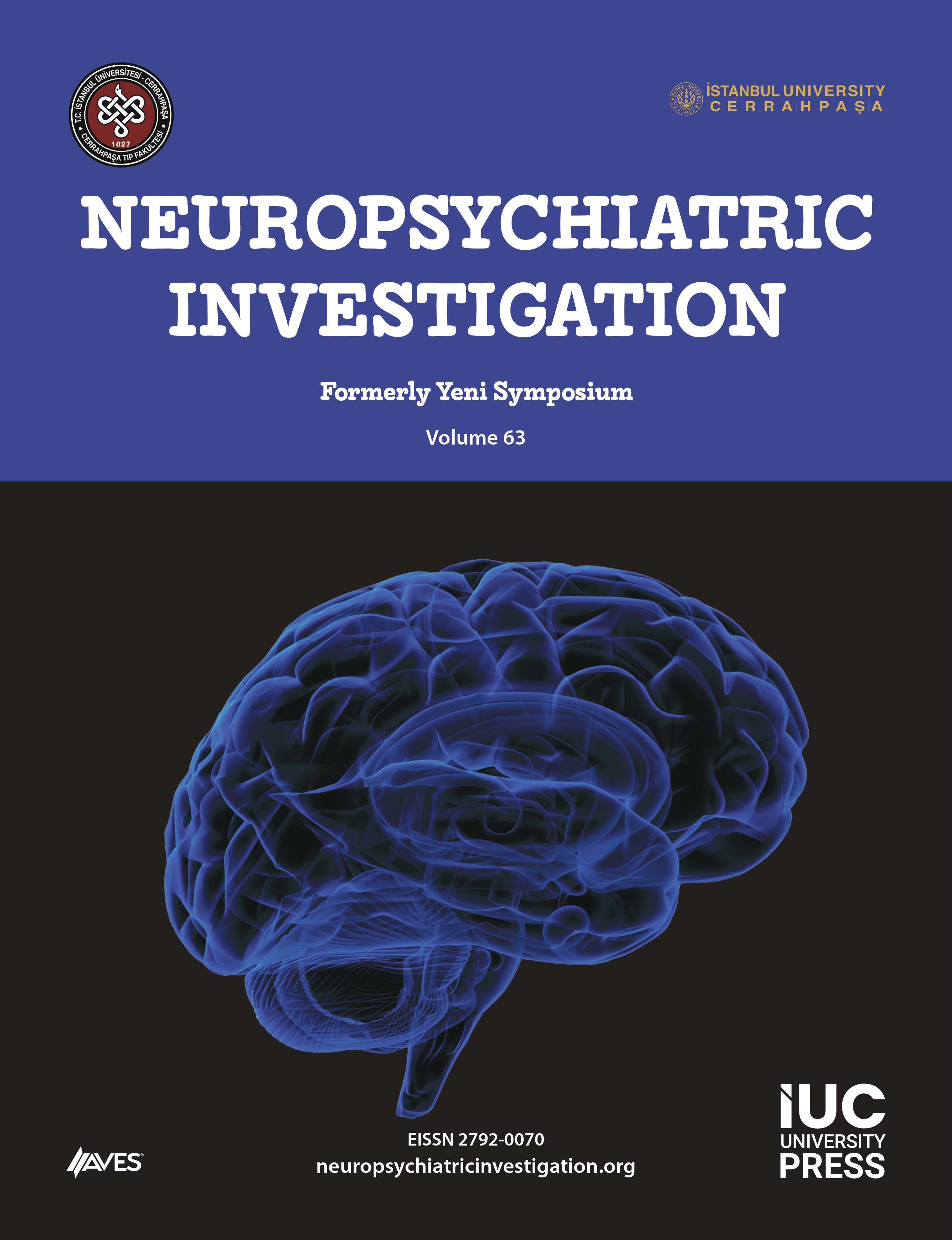Objective: The aim of this study was to investigate the factors associated with involvement in crime by examining the sociodemographic characteristics and psychiatric evaluation results of juvenile delinquents.
Method: Files of 185 patients aged 12-18 years, were examined. Psychiatric diagnoses of the cases were made according to the diagnostic criteria of Diagnostic and Statistical Manual of Mental Disorders-5. The intellectual capacity was evaluated with the Wechsler Intelligence Scale (WISC-R) for Children-New Version and Thematic Apperception Test was used for getting an idea about their inner conflicts, emotions and psychological needs.
Results: In our study, 93.0% (n=172) of the cases were male and 53.0% of the cases were dropped out of school. The most common crime type was theft (40.0%, n=74). There was a recurrent crime history in 31.4%. WISC-R Total IQ scores were significantly lower in the cases with recurrent crime history (p<0.001, 60.26±20.72). Psychiatric diagnosis was found in 61.1% and there was a significantly higher rate of psychiatric disorders in cases with a history of crime (p=0.011). The theme of offensiveness, aggression and anger in the Thematic Apperception Test was statistically significantly higher in those with a previous crime history (p=0.004).
Conclusion: In our study, finding a relationship between recurrent crimes and psychopathology is meaningful. Psychiatric follow-up and treatment are important in terms of reducing the probability of committing crimes again and bringing them to the society.




.png)